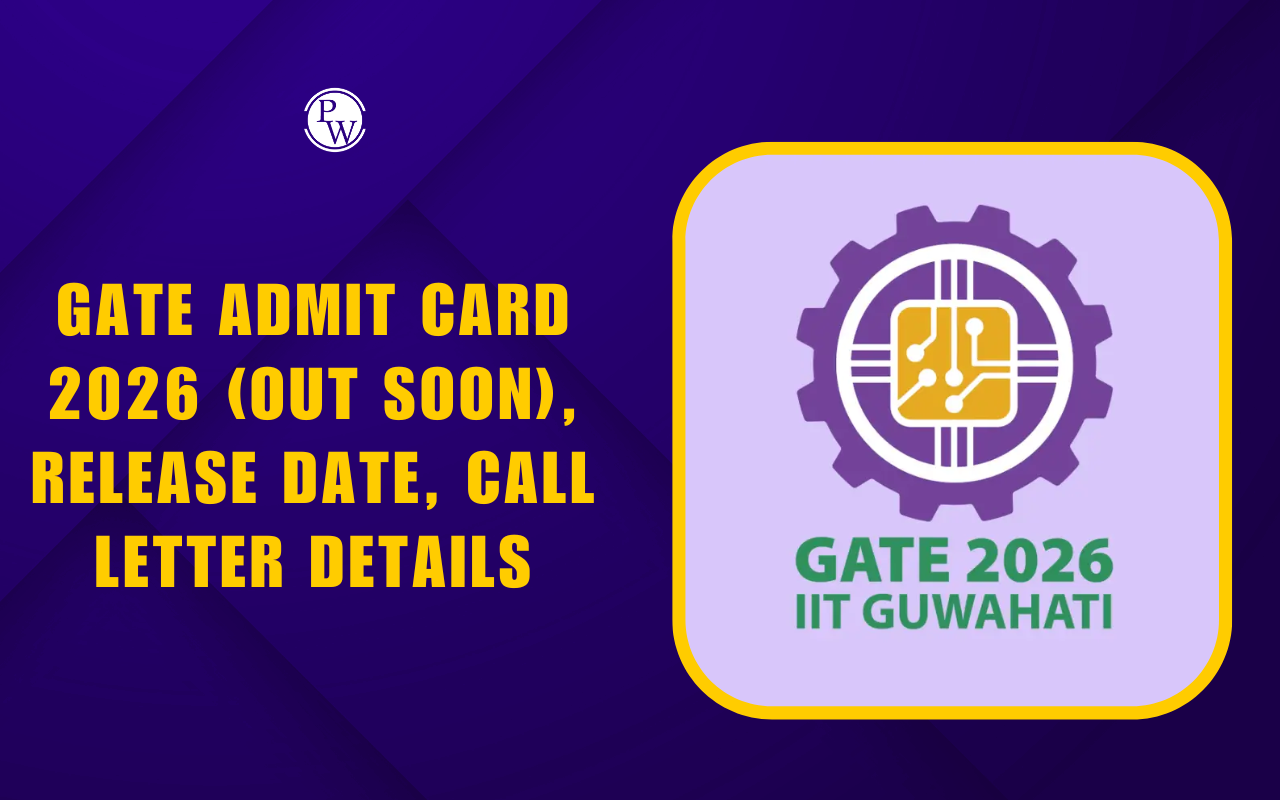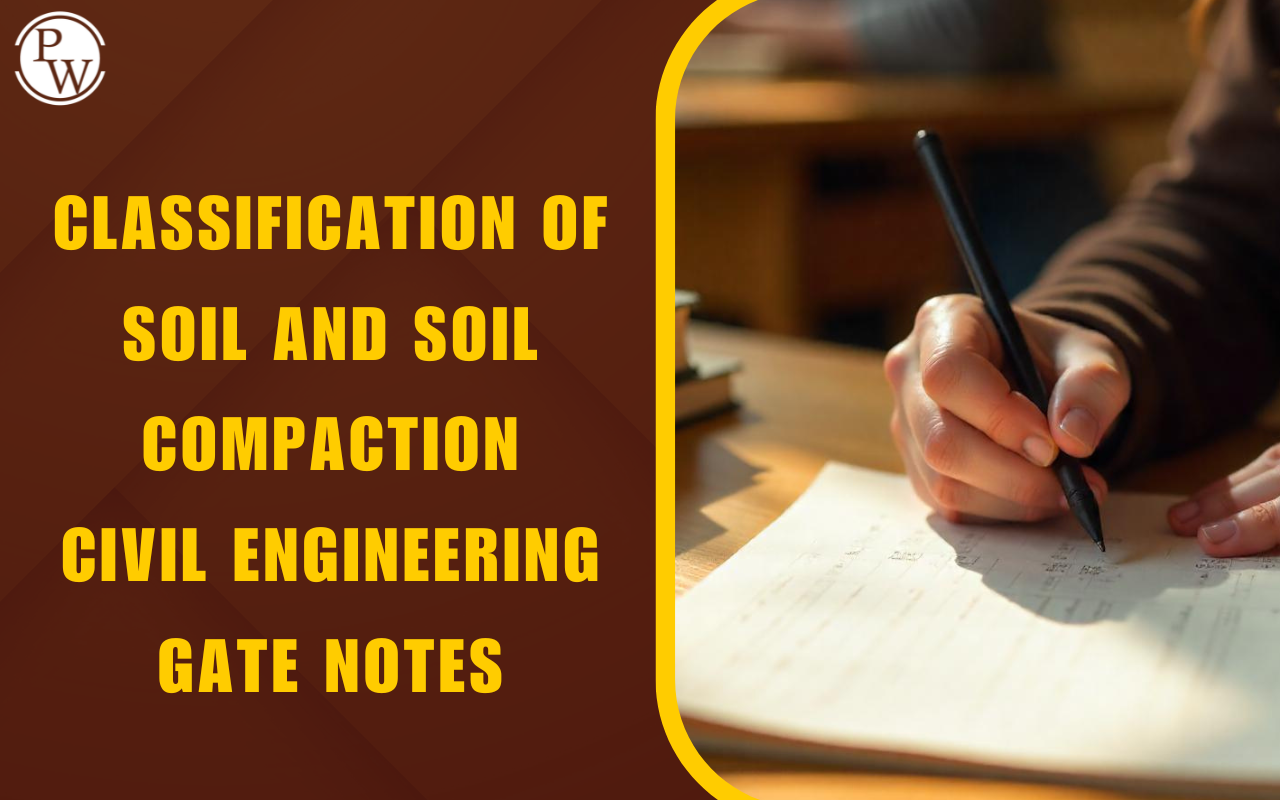
How to Choose the Best Branch for the GATE Exam - Aspirants who wish to appear for the prestigious GATE exam can select their preferred branch from a list of 30 GATE 2025 branches .
The choice of branches depends upon the aspirant's interests and professional goals, it is recommended that the eligibility criteria be thoroughly reviewed before filling out the registration form.
The GATE 2025 registration process closed on October 3 (for regular period) on the official portal, goaps.iitr.ac.in. Candidates can also select the two papers for the GATE exam in accordance with the GATE paper combination .
Choosing the best branch for the GATE exam is a crucial decision for aspirants to explore better career opportunities. We have suggested the most effective tips and tricks to select the appropriate branch for the GATE paper here.
How Should I Choose the Best Branch for the GATE Exam?
The Graduate Aptitude Test In Engineering is conducted for a wide range of engineering branches to facilitate PG admission to most prestigious institutions and jobs in premier organizations. Selecting the right branch for the GATE exam is essential for aspirants. Candidates are allowed to select the branch or discipline for GATE examination while filling the online application form.
Candidates must possess a B.E./B.Tech. or equivalent qualification in the related stream to select the appropriate branch. Aspirants failing to meet the eligibility requirements will not be allowed to appear for the exam. IIT Roorkee is going to host the GATE 2025 examination on 1, 2 15 & 16 February 2025. The exam will be conducted for 30 different branches of engineering/technology, humanities and science.
Aspirants must thoroughly verify their eligibility before selecting the branch for the GATE exam. Also, they find their interests and professional growth in the relevant field to choose the right specialization to appear for GATE.
How to Choose the Best Branch for the GATE Exam 2025?
Selecting the best branch for the GATE 2025 examination is a critical decision that can have a significant impact on an applicant's professional path. Aspirants must consider the following factors before making this decision:
Passion and Interest: The applicant's passion and interest in the field or subject should be the most crucial factors. Because their excitement for the selected GATE branch will encourage them to achieve in both their education and their careers.
Job Prospects: For the GATE exam, one must examine the job chances and growth prospects in their desired branch, which includes investigating the companies and sectors where professionals in that field or branch are in demand.
Academic Background: The applicant's undergraduate degree in engineering or science, as well as their educational background, can have an impact on their decision. It is frequently recommended to take a postgraduate degree in a related GATE branch in order to leverage one's existing knowledge.
Market Trends: Maintain current knowledge of market trends and emerging technology in one's desired GATE branch. This knowledge can help to match studies with industry demands.
GATE branches show the breadth and depth of careers in science and engineering. Whether applicants want to be computer scientists, civil engineers, physicists, or biologists, the GATE exam provides a platform for them to pursue their ambitions and develop a successful career path.
How to Overcome Fear Of GATE Exam?
GATE 2025 Papers or Branches
GATE is a prestigious competitive exam for engineering and scientific graduates in India. GATE's diverse selection of disciplines and specialties, covering an extensive variety of science and engineering subjects, is what makes it unique.
As of now, the GATE exam is conducted for 30 different branches of Science, Engineering/Technology, and Humanities. You must verify your eligibility criteria before selecting the branch for the GATE exam.
Also Check : How to Make Study Notes for GATE 2025?
How Many Branches Does GATE Have?
After the addition of the Data Science and AI branch or subject, the total number of GATE branches is 30. The GATE 2025 examination will be held on February 1, 2, 15 and 16, 2025 by IIT Roorkee. For aspirants' convenience, all GATE 2025 branch or subject names are included below, along with their corresponding paper numbers are tabulated below:
|
GATE 2025 Branch Names |
||
| Sl. No. | GATE Branches |
Paper Codes |
| 1. | Aerospace Engineering | AE |
| 2. | Agricultural Engineering | AG |
| 3. | Architecture and Planning | AR |
| 4. | Biomedical Engineering | BM |
| 5. | Biotechnology | BT |
| 6. | Civil Engineering | CE |
| 7. | Chemical Engineering | CH |
| 8. | Computer Science and Information Technology | CS |
| 9. | Chemistry | CY |
| 10. | Data Science and Artificial Intelligence (NEW) | DA |
| 11. | Electronics and Communication Engineering | EC |
| 12. | Electrical Engineering | EE |
| 13. | Environmental Science and Engineering | ES |
| 14. | Ecology and Evolution | EY |
| 15. | Geomatics Engineering | GE |
| 16. | Geology and Geophysics | GG |
| 17. | Instrumentation Engineering | IN |
| 18. | Mathematics | MA |
| 19. | Mechanical Engineering | ME |
| 20. | Mining Engineering | MN |
| 21. | Metallurgical Engineering | MT |
| 22. | Naval Architecture and Marine Engineering | NM |
| 23. | Petroleum Engineering | PE |
| 24. | Physics | PH |
| 25. | Production and Industrial Engineering | PI |
| 26. | Statistics | ST |
| 27. | Textile Engineering and Fibre Science | TF |
| 28. | Engineering Sciences | XE |
| 29. | Humanities and Social Sciences | XH |
| 30. | Life Sciences | XL |
Read: How to Overcome the Fear of GATE Exam 2025?
Which branch is the best for the GATE Exam?
Aspirants preparing for or planning to take the GATE examination frequently ask themselves, "Which branch is the best for the GATE exam?"
While the answer will vary depending on the applicant's technical discipline, area of interest, and career goals, this section provides an overview of some of the more popular GATE branches.
The GATE examination consists of 30 distinct papers representing 30 different subject areas. Let's examine each of the six main GATE branches in more detail:
Mechanical Engineering (ME)
Mechanical engineering is a discipline of engineering that designs, analyzes, produces, and maintains mechanical systems by fusing materials science, engineering physics, and mathematical concepts.
SOM, Engineering mechanics, DOM, TOM, thermal science, vibrations, FM, HT, Manufacturing & Industrial Engineering with Engineering maths, and General Aptitude are among the fundamental mechanical disciplines covered in the GATE Mechanical Engineering paper.
Civil Engineering (CE)
The design, construction, and upkeep of the physical and naturally created environment, including public works like highways, bridges, canals, dams, airports, sewerage systems, pipelines, building structural elements, and railroads, are the scope of the professional engineering discipline known as civil engineering.
Structural engineering, water resources engineering, geomatics engineering, environmental engineering, geotechnical engineering, transportation engineering, engineering mathematics, and general aptitude are among the core civil subjects covered in the GATE Civil Engineering Paper.
Electrical Engineering (EE)
The study, design, and implementation of machinery, devices, and systems utilizing electricity, electronics, and electromagnetic fields are the focus of the engineering discipline known as electrical engineering.
Electric Circuits, Electromagnetic Fields, Analog and Digital Electronics, Electrical Machines, Power Systems, Control Systems, Signals and Systems, Electrical and Electronic Measurements, Power Electronics, Engineering Mathematics, and General Aptitude are among the core electrical subjects covered in the GATE Electrical Engineering Paper.
Electronics and Communications Engineering (ECE)
Electronic engineering, also known as electronics and communications engineering, is a branch of electrical engineering that designs electronic circuits, devices, integrated circuits, and their systems using nonlinear and active electrical components (such as semiconductor devices, particularly diodes, and transistors).
Along with designing active electrical components, the discipline usually designs passive components using printed circuit boards. The GATE EC paper combines engineering mathematics and general aptitude with a range of fundamental topics in electronics and communication, such as networks, electronic devices, analog and digital circuits, control systems, signals, and systems, communications, and electromagnetics.
Computer Science Engineering (CSE)
Program design, computer hardware, software, programming languages, algorithm analysis, and other computation-related subjects are all included in the field of computer science engineering (CSE). Electrical engineering, mathematics, and languages are the foundations of computer science engineering.
Digital Logic Boolean algebra, Algorithms, TOC, COA, Programming and Data Structures, OS & Computer Networks with Engineering & Discrete Mathematics, and General Aptitude are all combined in the GATE CS paper.
Instrumentation Engineering (IN)
Instrumentation and control engineering is the field of engineering focused on the design and implementation of systems that use process variables, as well as their measurement and control. Humidity, pressure, temperature, flow, pH, force, and speed are examples of process variables.
The GATE IN paper combines engineering mathematics and general aptitude with core instrumentation subjects such as electrical circuits and machines, analog and digital electronics, electricity and magnetism, signals and systems, sensors, and industrial control systems, and communication instrumentation.
Elevate your GATE 2025 readiness with Physics Wallah’s GATE Online Courses . PW GATE Online Coaching offers comprehensive live sessions tailored to the syllabus, invaluable study materials, practice tests, and much more.
How to Choose the Best Branch for the GATE Exam FAQs
Q. GATE 2025 में कितनी शाखाएँ हैं?
Q. Which GATE 2025 branch is the best?
Q. What is the GATE 2025 branch that was recently added?
Q. Which is the most difficult GATE 2025 branch?
Q. Can I select any branch out of the 30 branches for GATE?









